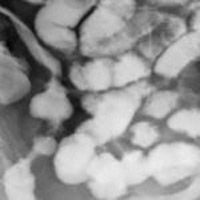Transoral Fundoplication: Effective GERD Treatment?
According to a new study published in Gastroenterology, research results showed that transoral fundoplication, an incision-less procedure allowing anti-reflux valve alteration, is an effective treatment for patients afflicted with gastroesophageal reflux disease (GERD).

According to a new study published in Gastroenterology, research results showed that transoral fundoplication, an incision-less procedure allowing anti-reflux valve alteration, is an effective treatment for patients afflicted with gastroesophageal reflux disease (GERD).
The procedure was particularly successful for patients with persistent regurgitation regardless of proton pump inhibitor (PPI) therapy. John G. Hunter, MD, from Oregon Health & Science University, commented in a news release, “Despite therapy, patients with GERD often suffer from troublesome regurgitation, which impairs their quality of life. This study offers evidence that transoral fundoplication is effective in eliminating troublesome GERD symptoms, especially regurgitation, with a low failure rate and good safety profile for six months.”
According to the study authors, “Despite this, up to 40 percent of PPI-dependent GERD patients have troublesome symptoms of GERD. Transoral fundoplication may offer a new treatment option for these patients.”
The study involved a sham-controlled trial of 129 patients focused on determining whether transoral fundoplication improved troublesome regurgitation compared with PPI therapy in GERD patients. The pool of patients was randomly assigned to transoral fundoplication using the EsophyX-2 device and six months of placebo, or a sham surgery and 6 months of once or twice daily omeprazole.
Elimination of troublesome regurgitation was achieved in more patients treated with transoral fundoplication than with omeprazole: 67% versus 45%. Additionally, a larger proportion of controls demonstrated no response at 3 months (36%) than patients who underwent transoral fundoplication (11%). It’s important to note that participants from both groups achieved similar reductions in GERD symptom scores.
Results indicated severe complications were rare.
The authors concluded, “This study provided evidence of transoral fundoplication’s efficacy, and will likely lead to more widespread use of the procedure in clinical practice.”